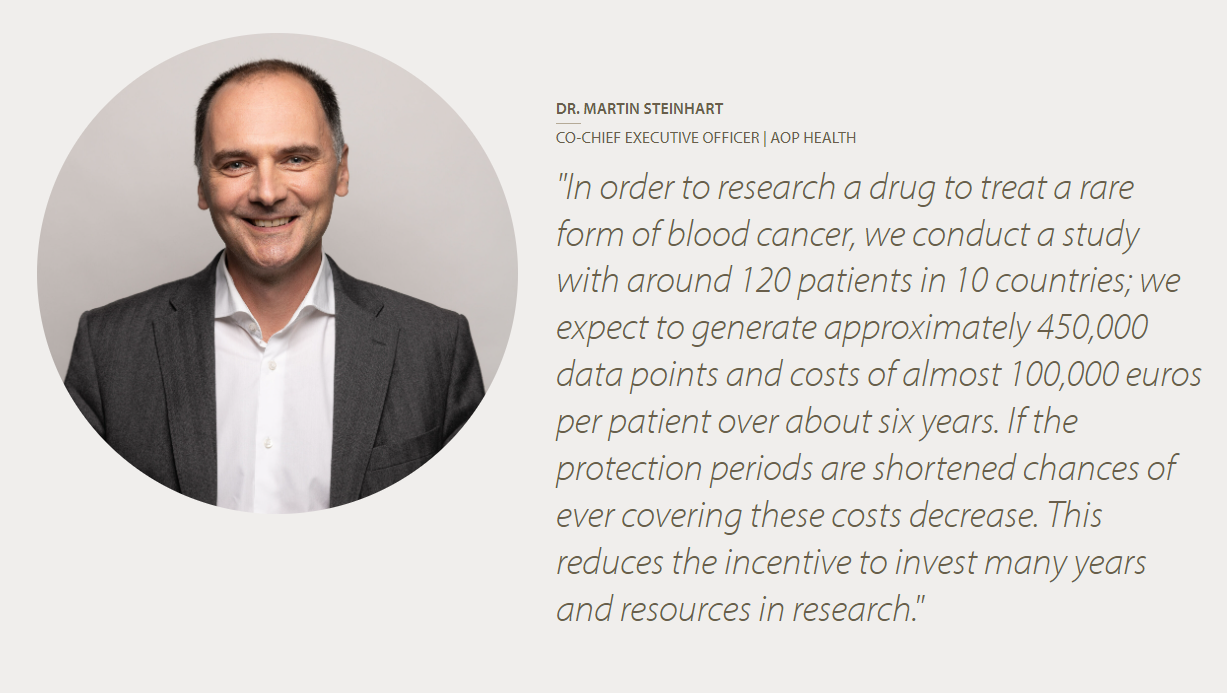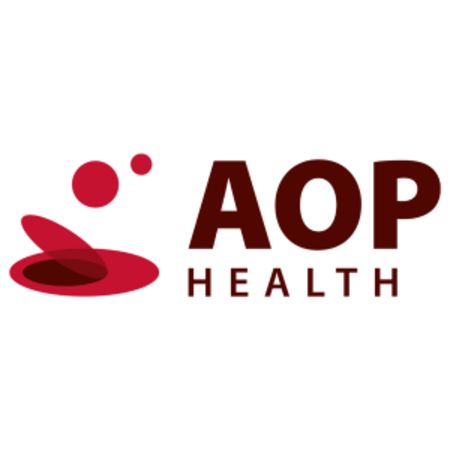The entire EU pharmaceutical legislation is currently being negotiated. Among the regulations to be redefined are those concerning rare diseases. Experts fear that the planned changes – in particular by shortening protection periods – will lower the incentive for companies to conduct research in the field of rare diseases. This would reduce the availability of adequate therapies for patients and would also have an impact on Europe and Austria as an economic and scientific location. AOP Orphan Pharmaceuticals GmbH (AOP Health), an Austrian company that has been conducting research in the field of rare diseases for over 25 years, has drawn attention to this potentially adverse situation for patients together with Susanne Greber-Platzer, MedUni Vienna's expert in this very field.

Media background discussion with Dr Martin Steinhart, CEO AOP Health, Prof.in Susanne Greber-Platzer, MedUni Wien, Dr. Johanna Grames, AOP Health and Mag. Nina Roth, AOP Health Corporate Communications
Copyright: AOP Health/APA-Fotoservice/Leitner
Around 400,000 people in Austria are affected by a rare disease. There are currently no adequate therapies for about 95 percent of these conditions, which is why there is a great need for safe and available pharmaceuticals to treat them.
Susanne Greber-Platzer, Head of the Department of Pediatrics and Adolescent Medicine at MedUni Vienna and Vienna General Hospital, conducts research in the field of rare diseases and comments: "The fact that the standard of health has greatly improved in recent decades is due to the lively research and development activity in medicine. In the field of rare diseases, where there are few therapeutic options, research and development are particularly crucial to improve the quality of life and life expectancy of those affected."
The proposed EU legislation makes research activities less attractive
The objectives of the EU pharmaceutical legislation ("EU Pharma Package") are to secure access to medication, as well as the availability and affordability of the products. However, the current bill could jeopardize these goals, in particular by shortening data protection and market exclusivity alike. This is because the new EU pharmaceutical regulation bill is designed to reduce protection periods and to attach any possible extension thereof to additional conditions.

Reason to fear fewer therapies for patients
The pharmaceutical industry is researching and developing new therapies for rare diseases. Since the costs and regulatory requirements for the development of therapies in this area are just as high as for common diseases, whereas the number of people affected is low, the engagement in this field is particularly difficult. The proposed legislation comes with additional hurdles. These would make research activities less attractive and thereby ultimately further worsen the already inadequate care of patients due to the lack of research that would deprive patients of a chance to receive new therapies. Johanna Grames, health economist and public affairs officer at AOP Health, explains why: “Pharmaceutical and clinical research is challenging. Only one in twenty oncology research programs, for example, is successful. In the field of rare diseases, most clinical pictures are still completely unexplored; hence, we operate in an even more difficult environment. If the pharmaceutical legislation is implemented as planned, the care of patients with rare diseases will not be able to improve."
Strong pharmaceutical industry secures patient care
Newly authorized therapies are only created through research and development done by pharmaceutical companies. To positively influence the investment decision of companies, three possible political levers are available: generous research funding, higher drug prices, or long protection periods.
Longer protection periods guarantee that companies have enough time to cover the investments made years in advance. This secures patient care in Europe, the business location, as well as prosperity and health systems.
Susanne Greber-Platzer concludes: "We need a strong pharmaceutical industry in Europe that, together with our clinics and university institutions, carries out research on drugs and brings them to authorization. This is the only way to develop new therapies in Europe for patients with rare diseases who are already underserved."
Pharmaceuticals: Research and Authorization
A drug is created over the course of many years in several steps, all of which carry a risk: Pharmaceutical development generates a product, such as a tablet or liquid, that is supposed to stably contain the active ingredient and release it in the right places in the human body at the right speed. In preclinical development, the mechanism of action and the toxicity are assessed using different methods. Afterwards, safety and efficacy are evaluated and confirmed in elaborate clinical studies.
In Europe, the drug is finally authorized by the European Medicines Agency (EMA) and, in a second step, authorized by national authorities, usually followed by national reimbursement by the social security institutions.
Source: AOP Health

























